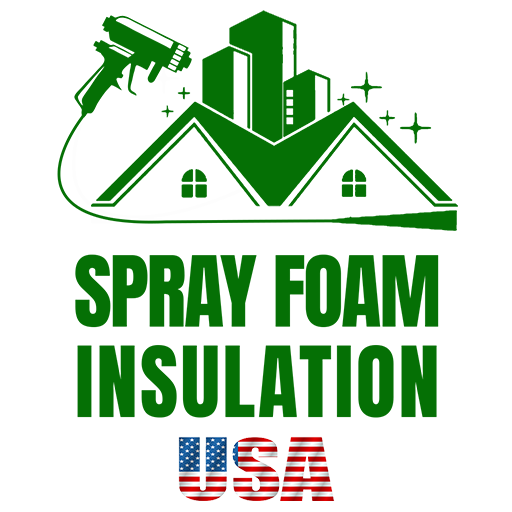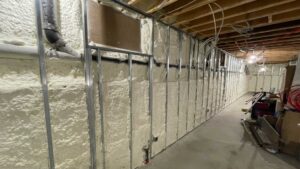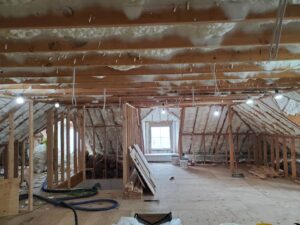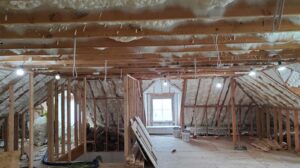Spray foam insulation has become famous among homeowners seeking to enhance energy efficiency and comfort. However, despite its growing use, several myths and misconceptions surround it.
These myths can lead to confusion and prevent people from making informed decisions about their insulation needs. This article will debunk some of the most common spray foam insulation myths.
5 Myths About Spray Foam Insulation Debunked
Let’s get to the truth about spray foam insulation.
Myth 1: Spray Foam Insulation is Toxic
One of the most pervasive myths about spray foam insulation is that it is toxic and harmful to indoor air quality. While it’s true that spray foam contains chemicals that, if improperly mixed or applied, can emit dangerous fumes during installation, this is not a concern when the product is installed correctly by professionals.
When used by trained and certified installers, high-quality spray foam quickly becomes inert, meaning it no longer releases chemicals into the air. Once fully cured, spray foam insulation is safe and does not threaten indoor air quality.
Myth 2: Spray Foam Insulation Causes Mold Growth
Another common myth is that spray foam insulation can lead to mold growth. This misconception likely stems from confusion between different types of insulation and their interaction with moisture.
The truth is that spray foam, particularly closed-cell spray foam, is highly moisture resistant and can help prevent mold growth. Closed-cell foam creates an air and moisture barrier that keeps humidity out, reducing the likelihood of mold forming on surfaces.
Myth 3: Spray Foam Insulation is Only Suitable for New Construction
Some people believe that spray foam insulation is only appropriate for new construction projects, but this is far from the truth. Spray foam can be used effectively in both new and existing homes.
Whether building a new house or retrofitting an older one, spray foam insulation can be applied to walls, attics, crawl spaces, and basements. Many homeowners choose spray foam when renovating because it can be injected into existing wall cavities without extensive demolition.

Myth 4: Spray Foam Insulation is Too Expensive
While spray foam insulation is generally more expensive upfront than traditional insulation materials like fiberglass or cellulose, the long-term benefits must be considered. Spray foam’s superior insulating properties can significantly reduce energy bills by keeping your home warmer in the winter and cooler in the summer.
Additionally, because spray foam does not degrade or settle over time, it maintains its effectiveness for the life of the building, offering long-term savings that can offset the initial investment. When you factor in the energy savings and the material’s durability, spray foam insulation is often more cost-effective over time.
Myth 5: Spray Foam Insulation Makes a House Too Airtight
The misconception is that spray foam insulation makes a house too airtight, leading to poor indoor air quality. While it is true that spray foam creates a highly effective air barrier, this does not mean that a house becomes “too tight.”
Proper ventilation is critical to maintaining good indoor air quality, and homes with spray foam insulation can still be designed to allow for controlled ventilation. By preventing unwanted drafts and sealing gaps, spray foam helps create a more controlled environment where air exchange can be managed effectively.
Are You Thinking About Spray Foam Insulation For Your Home?
If you’re considering upgrading your insulation, Spray Foam Insulation USA can help better insulate your home and significantly reduce energy bills, ensuring you enjoy a comfortable and energy-efficient living space for years.
Isolate your home today and don’t worry tomorrow! Contact us today!





